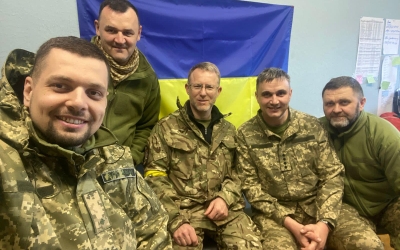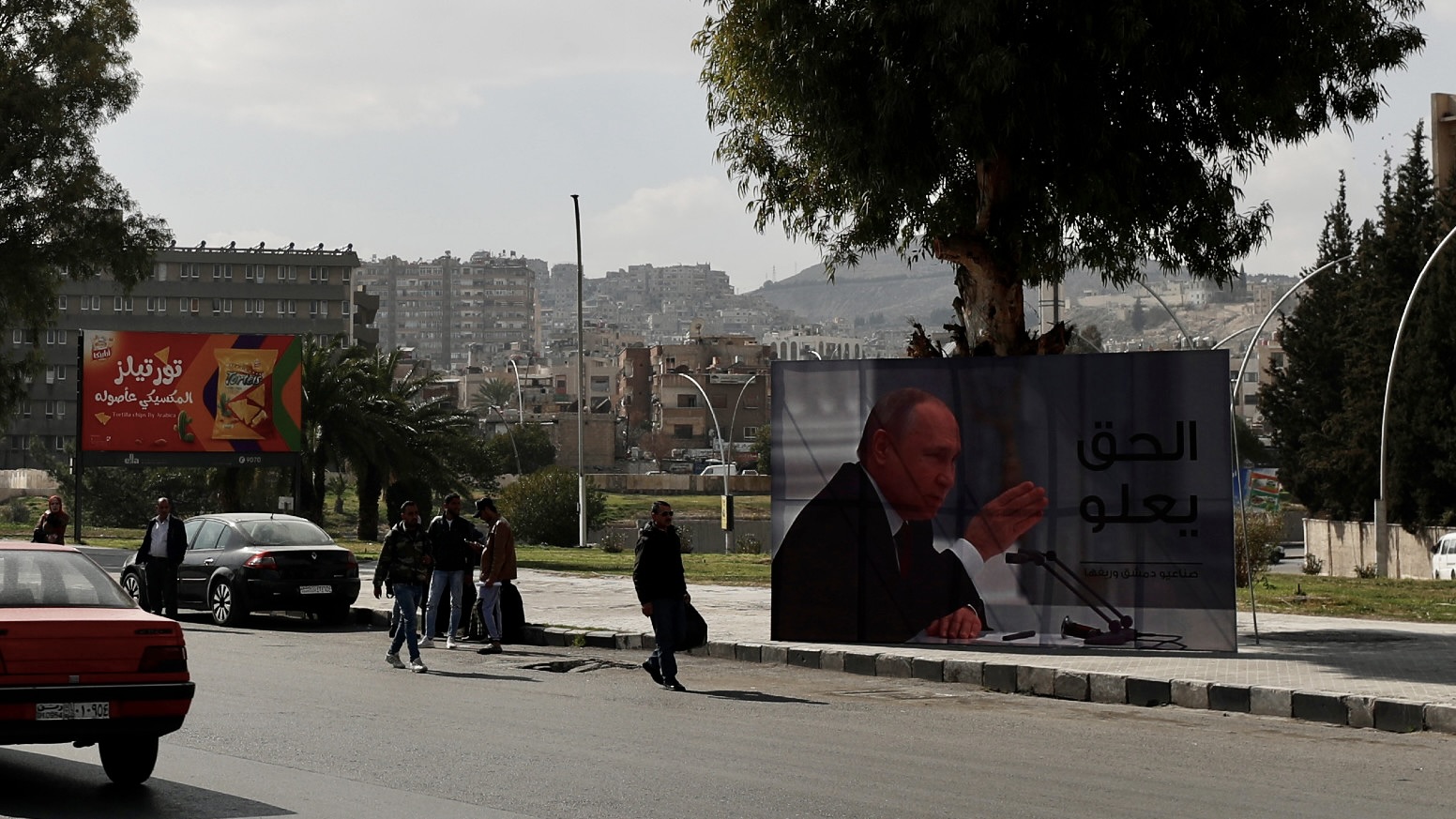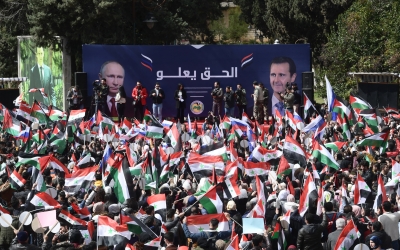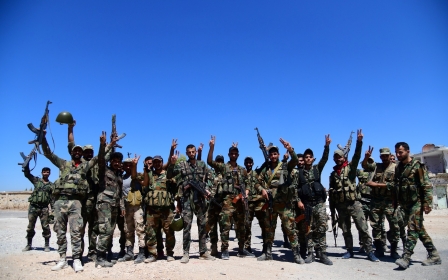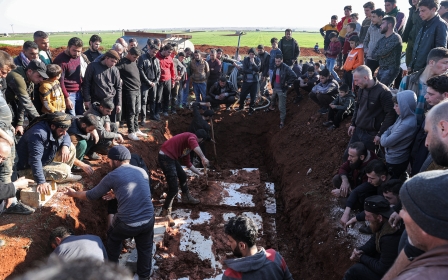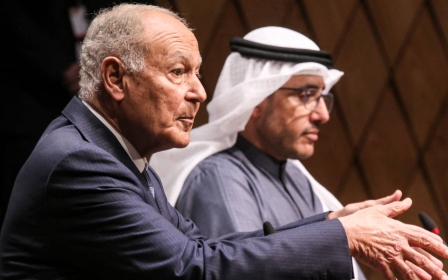Russia-Ukraine war: pro-Assad Syrian soldiers prepare to fight for Kremlin
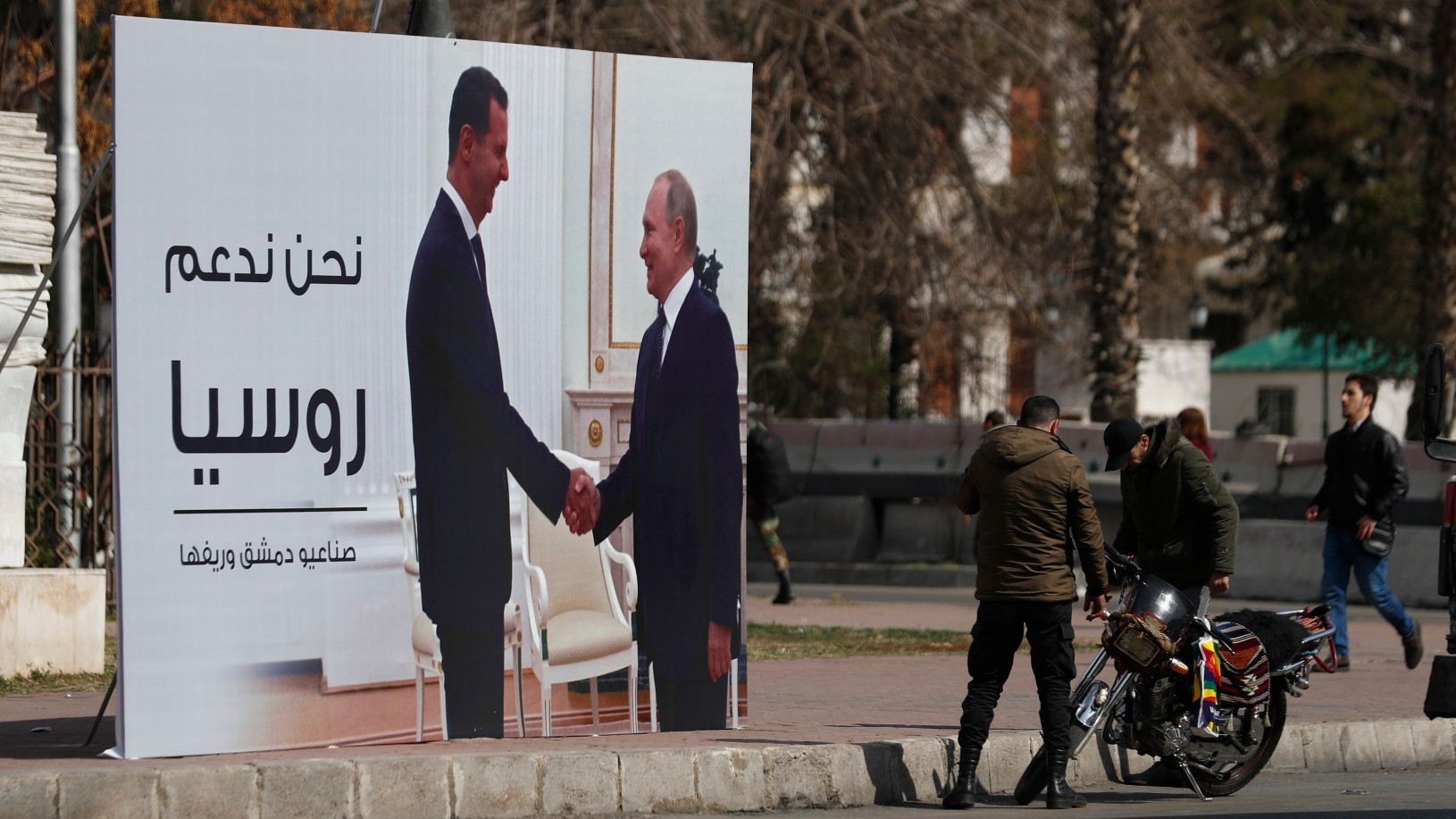
Pictures of Russian President Vladimir Putin adorn the main squares of Damascus. One poster, made by the industrialists of Syria's capital city, reads: “We support Russia."
Metres away stands another huge placard bearing the face of the Russian leader.
Government-controlled parts of the country are in full Putin mania now Syria has backed Russia’s invasion of Ukraine, which has left at least hundreds of civilians dead and forced around three million to flee their homes.
Not only was Syria one of only five countries to vote against condemning Russia at the UN in early March, but it has also signalled a solid intent to recognise Luhansk and Donetsk, the two Moscow-backed breakaway republics in Ukraine, long before anyone else.
Foreign Minister Faisal Mekdad said in late February that Syria "will cooperate" with the two regions.
The offensive in Ukraine has been sluggish and cumbersome, meeting fierce resistance and sanctions from the West, which has supported Kyiv.
Putin’s assessment that Syrian and Middle Eastern volunteers - all 16,000 of them - are ready to join the fight appears premature.
The recruitment process in Syria is still incomplete and features nothing close to the numbers the Kremlin has suggested so far.
But some Syrian fighters are certainly ready to join Russia's war.
'We were victorious here and will be there'
“We are ready to go and fight for Russia; if the salary is good, then why not," a former Syrian soldier speaking on condition of anonymity told MEE, adding that he and many others were prepared to join the combat.
"Russia fought with us in Syria, what’s the difference between using a gun here and there?”
Ukraine's President Volodymir Zelensky has described such men as "thugs" and "mercenaries who simply go to kill in a foreign land".
But the fighter told MEE: “It’s not a foreign war, everywhere Russia is, we should be, and it’s the same in Syria.
"The West has wanted Russia’s head ever since Syria, the least we can do is fight if they need us - if there is a decision here, we will follow through with it.”
Speaking in front of a Russian-funded miniature of the Hagia Sophia in Suqaylabiyah, in Northern Hama province, a Syrian militia commander said he was ready to fight in Ukraine in a video published on Sunday.
“We are not scared of this war at all, and we are ready for it," said Nabel Abdallah, a leader of the National Defence Forces, a pro-Assad paramilitary organisation.
The town of Suqaylabiyah sits on the border of the rebel-held Idlib region. Russia directly supported its 17,000, mostly Greek Orthodox residents during the war.
In his video, Abdallah dismisses claims that his group has already been deployed to Ukraine: “I am speaking about the media empires who said we have already travelled to Ukraine to fight with the Russians," he said, "and that we already have recruitment centres opened. Until now, we are still here in our land.
"As soon as we get orders, we are going to show them [Ukraine] things they've never seen. We were victorious here in Syria against terrorism and will be there.”
'Lots of Syrian officers speak Russian'
Officially, both Russia and Syria have been tight-lipped on details of the recruitment.
Semi-official army pages on social media - which have previously posted calls-to-arms - have requested volunteers.
Footage on Russia Today described as “Syrian volunteers prepare to fight in Donbass” showed a large group of fighters holding Russian flags and pictures of the Syrian president.
However, the footage - clear propaganda - provides no information about recruitment centres, fighter numbers, or an accurate timeline of when they could travel.
Usually trustworthy Syrian private sources have only discussed initial recruitment details of limited numbers - hundreds, not thousands.
In Damascus, some volunteers attempted to join the fight in Ukraine via the Russian embassy but were refused. One source told MEE that the reply was “The embassy doesn’t deal with these types of requests.”
Russia's Hmeimim airbase, on the northwest coast, will likely be the go-to location for organising travel for recruits and mercenaries to Ukraine, and the process will be slow.
Syrian forces would hypothetically need training to fight in a foreign country where they do not speak the language. And official Syrian armed forces would need special dispensations to fight in a foreign war, draining the SAA's pool of potential recruits to fight domestically.
But "lots of senior Syrian officers speak Russian as well,” Kamal Alam, a non-resident senior fellow at the Atlantic Council, told MEE, adding: “Syrian fighters, while alien to the environment, are now battle-hardened experts in urban warfare."
Middle East Eye delivers independent and unrivalled coverage and analysis of the Middle East, North Africa and beyond. To learn more about republishing this content and the associated fees, please fill out this form. More about MEE can be found here.


